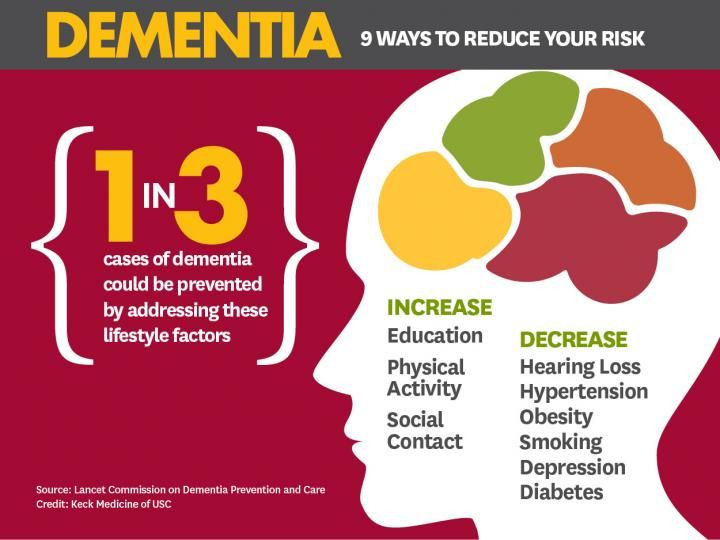9 Ways To Prevent Dementia, From Getting More Exercise To Managing Depression

About one-third of dementia cases could be prevented if a person’s lifestyle factors such as diabetes and hypertension are managed, according to a new report presented at the Alzheimer’s Association International Conference (AAIC) in London.
Furthermore, the report identifies ways to treat dementia without using medications that are typically prescribed. The report is a collaborative effort of 24 experts from around the globe who reviewed existing research regarding the prevention and treatment of dementia. It highlights nine specific risk factors (as seen in the infographic below) that increase the chances of developing Alzheimer’s and other forms of dementia.
Read: How To Create A Dementia-Friendly Home; New App Offers Personalized Suggestions To Improve Environment
“There’s been a great deal of focus on developing medicines to prevent dementia, including Alzheimer’s disease,” Dr. Lon Schneider, presenter at the AAIC, said in a statement. “But we can’t lose sight of the real major advances we’ve already made in treating dementia, including preventive approaches.”
The rate of new cases of dementia could drop by as much as 20 percent if all of the following are addressed: increasing education from a young age, managing hearing loss, and taking care of hypertension and obesity in midlife, the report states. Additionally, even more cases could be reduced if certain lifestyle factors in late life are addressed, such as treating depression and being more social.
"The potential magnitude of the effect on dementia of reducing these risk factors is larger than we could ever imagine the effect that current, experimental medications could have," Schneider said. "Mitigating risk factors provides us a powerful way to reduce the global burden of dementia."
Read: Walking Every Week May Help To Fight Common Form Of Dementia, Study Finds
About 47 million people worldwide currently live with dementia and this number is expected to nearly triple by the year 2050, according to the World Health Organization. Dementia is a broad term that includes diseases such as Alzheimer’s, Parkinson’s, and Huntington’s. Depending on the stage of disease, treatments typically involve therapies and medications. But, in the new report, the authors warn against specific drugs and note that other types of interventions may be more effective.
"Antipsychotic drugs are commonly used to treat agitation and aggression, but there is substantial concern about these drugs because of an increased risk of death, cardiovascular adverse events and infections, not to mention excessive sedation," Schneider said.
The research review revealed that social contact and other activities may be even more effective than antipsychotic meds at treating agitation and aggression that comes along with dementia
See also: Exercise May Help Protect The Aging Brain From Alzheimer’s And Other Forms Of Dementia



























